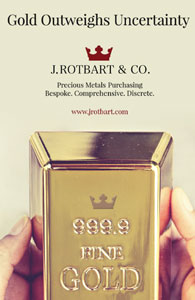|
Rabbi Lazer Brody’s name may sound familiar as a bestselling writer, speaker, counselor and teacher; but what he teaches is not originally his. Rabbi Brody says “It’s not mine, it is time tested advise from Doctor Soul, Rebbe Nachman of Breslov, and I now have the privilege to bring it down to the English speaking world.”
This man with eyes that sparkle with happiness, a smile that can warm up a room and knowledge of the ages paid a visit to Hong Kong, thanks to the encouragement of the Lawrence family. Rabbi Brody spent a few days speaking to the community, listening to their issues, sharing valuable advice and overall making people happier by explaining the concept of emuna - a complete belief in Hashem.
First lets meet Rabbi Brody.
He was born in Washington, D.C. in 1949. In 1970, after receiving his Degree in Agriculture from the University of Maryland, he moved to Israel, joined the Israel Defense Forces’ regular army and served in one of the elite special-forces units.
After a near-suicidal mission in Beirut during the Israel- Lebanon conflict of 1982, Rabbi Brody said he could no longer ignore the hand of the all mighty in his life. He became a baal-tshuva, left his farm and moved to Jerusalem to study Torah.
Nine years later, in 1992, he was ordained as a rabbi. He spent the next two years of postgraduate studies learning about personal and family counseling. The following two years he was the rabbi and spiritual rehabilitation director of a major Israeli prison.
In 1996 he moved to Ashdod and understudied with the Melitzer Rebbe and two years later Rabbi Shalom Arush opened a branch of the Chut Shel Chessed – Breslov Yeshiva in Ashdod and appointed Rabbi Brody as the Dean of the rabbinical programme.
Today Rabbi Brody spends his time traveling around the world doing Jewish Outreach. He also has written numerous books and is the English voice of his teacher Rabbi Arush.
Among their most successful titles is The Garden of Emuna, which has sold over 1.5 million copies and has become one of the bestselling contemporary books in the Jewish world. They have also published a book for men only titled The Garden of Peace, which has sold more than half a million copies and one for women called Women’s Wisdom, The Garden of Peace for Women, which was just published in English. All three titles were originally written in Hebrew. Rabbi Brody has many other titles, including his latest called
The Trail of Tranquility. He has also released a number of CDs that deal with multiple topics from marriage, to parenting, to money and everything in between, which have surpassed the one million copies sold.
So what are these pearls of wisdom that have created this tipping point and such hunger for these books and CDs and the ideas they contain? And why are people filling auditoriums around the world when Rabbi Arush and Rabbi Brody speak?
It is the simple yet powerful message of emuna. From there, Rabbi Brody gives insights into how to be happier, how to have better relationships and how to be a better parent. The simple stuff in life all through the power of emuna.
On emuna and happiness Rabbi Brody explains that “we all have the same spiritual DNA and, according to Rashbi, our soul is a tiny part of Hashem. In our generation, we all have the same soul correction, which is to find emuna. If we find emuna our soul will be happy.” He goes on to say that there are three elements of happiness.
The first is to find peace within ourselves. The second is to find peace with our fellow men - love thy neighbours as thyself. And third is to find peace with Hashem. Rabbi Shimon Bar Yochai, then Rabbi Nachman, then Rabbi Arush and now Rabbi Brody all say that happiness is our link to the higher power. When our bodies get thirsty, we know to give them water.
But how do we know what our souls need? Rabbi Brody says that a need of the soul shows up as “strong emotions.” “You feel anxious or depressed and then you know there is a problem.”
The solution lies not in the psychologist and the pills we take, because they don’t deal with the root of the problem. What our souls need is to connect – they need emuna.
He suggests that as soon as we have a strong emotion, we should take a three second time out; especially if it is a gut reaction.
He calls it the “three second rule.” If you can take three seconds before reacting, then the brain can take back its control, away from the evil inclination, and you can react correctly. Developing emuna is a process and it comes with tests.
Rabbi Brody explained that once we have emuna our tests get tougher and tougher. It is a “spiritual ladder that we have to climb, we have to move up on it and that will give us satisfaction.”
Life is one big test with one learning after another, but you can’t avoid the final exam.” He asked us, “If your choice was between Tehilim and missiles, which would you pick?”
But don’t think that attaining this is easy. “It is hard to find emuna, but if you look you can get it and then you should ask Hashem to help you maintain it once you have found it.” But note they are two very different challenges.
Rabbi Brody himself had doubts. When he was 23 and a yeshiva student, his teacher “was a pimpled face 17 yearold” and he almost threw in the towel while studying Gemora. Luckily he didn’t give up and realised from the 17 year-old that there was a lot to learn.
“Hashem is like a parent that just wants to hear your voice.” As a parent if you don’t hear from your kids, you may freak out because you want to know everything is OK. “He waits for you as well. So call Hashem once in a while.
Speak to Him one hour a day. Use your own words and build a relationship with Him, it will bring you inner peace and satisfaction.”
On relationships
In terms of relationships, Rabbi Brody says “if you follow these very simple things, even if you do it on a unilateral basis, you will have a dream relationship.”
The fi rst thing is the mirror effect, the second is gratitude and the third are comments and criticism. Together these three points can make “a monumental change in your marriage.”
The mirror effect: fi rst, understand that if you and your spouse stood under the chuppah, they are your intended.
Your spouse knows exactly what buttons to push because they are the other part of your soul. They are also what you need to make your soul correction.
When you feel like your partner is pushing you, it is not they, but the almighty trying to give you a message on what it is you must change. “If you have something that you are very good at, you don’t need a soul correction.” However, if you have an area you need to develop, your partner is there to help you overcome your weakness.
There is a law in Jewish spirituality that says that one accuses another of one’s own faults. In psychology it is known as projection. So when your spouse upsets you, take a moment and realise there is a message there, don’t get angry with them because you are just seeing yourself. Elevate yourself above the level of confl ict.
“There is nobody that can better help you attain your soul correction on earth than your husband or wife.”
“One cannot get close to Hashem without improving one’s character. So when you realise that our husbands and wives are our own mirrors and we better ourselves, then we make them better, because we are connected and we get elevated.”
This brings us to gratitude.
“I will venture to say that 90% of the lack of marital peace among people is lack of gratitude. Taking things for granted.”
Rabbi Brody suggest we get a little pocket notebook and write down every small and big favour our spouse does for us. “Wait and see how many pages you’ve fi lled up after a week.”
At the Brody household, they have a box and everyone in the family writes thank you notes to other members who did favours for them during the week, things that many may take for granted. For example: thank you for taking out the trash without me having to ask, or thanks for doing the fruit shopping, or thanks for the smile.
Then at the Shabbat table they break the box open and share all the messages. “Everybody knows how many notes they’ve written and this brings so much light to the table… when you recognise the little things.”
There is a very important concept, which Rabbi Brody calls the expectation / realisation ratio. He explained it with this analogy. Suppose on a scale of 1 to 100, that water is 10 and champagne is 90. If you think you deserve nothing and someone brings you a glass of water, since you had no expectations and water is worth 10, now you have 10 happiness points. However if you think you deserve everything and you’re expecting a Schweppes, which is worth 70 points, but you get the same glass of water, then you have a 60 point defi cit in happiness.
“Learn to appreciate what you have. Lets take our expectations and think in the mindset that we come into life and nobody owes us a living, nobody owes us anything. This world is simply an opportunity for us to correct our souls and be happy to move on.“ We should be grateful and appreciate every little thing. “Husbands to wives and wives to husbands, look for the little things” they do for you and you will be happier.
“The word Jew in Hebrew is Yehudi. It comes from the word leodot – to thank you.” When Leah had her fourth son and realised she was going to have more kids than any of the other women (she had 6 out of the 12 children), “she said to Hashem, this time I’m really going to thank you!”
The third point included comments and criticism.
“Women to husbands, husbands to wives from this moment on, and if you do just this one point, you’re going to have a happy marriage, from this moment on decide that comments and criticism are just as un-kosher as pork and have no room in a Jewish household.”
Here two pieces of advice for the men. The most important thing for your wives is that they are number one in your life.
“She must be fi rst in her husband’s thoughts above everything, because a woman can’t stand to be second fi ddle. As soon as she’s second fi ddle to anything, then it’s a shy taste in her mouth and life is not worth living.”
The second most important thing for a woman is “that she is perfect in her husband’s eyes.”
So any comment or a criticism you make will sound to her like this statement: “sweetheart you’re not perfect.” “I tell husbands, when your wife burns your toast, get on your computer, do a Google search on how carbon is good for the human body. Eat the toast and shut up. Cause that’s what Hashem wants from you with emuna – that’s why you need it. Don’t ever agree with your wife if she says anything derogatory about herself, don’t ever agree with her because you’re being tested.”
Rabbi Brody also suggests that the men take off a half an hour a day for two months and put it towards the spiritual side of their life. He promises you won’t lose anything materially and you will gain so much in other aspects of your life.
To the women, Rabbi Brody had this message, “Your husband is an economic gladiator,” so when he comes home after fi ghting with employees, peers, bosses, clients don’t attack him.
“Let the guy take his coat off, let the guy put his hat on the hat rack, and sit down and greet him with a nice smile, a coffee or whatever he likes to drink and you will soon be able to tell him anything you want.”
If you want these positive attributes to become part of your spouse’s actions, the secret is to profusely reinforce and compliment their positive actions. A frontal assault is fruitless, because both sides will lose. Negative comments and criticism fuel the fire, so we must avoid conflict and disengage.
On parenting
When it comes to parenting, Rabbi Brody recommends that parents spend two hours of individual quality time with their children every week. Fathers with sons and mothers with daughters or even fathers with daughters and mothers with sons, “make this time as it will manifest later on in their own shalom bait – peace at home.” One note Rabbi Brody adjusted for this part of the world was this, the domestic helper “does not raise your kids, your wife raises your kids. That’s the most important thing. So having a helper frees your wife to spend more time with the kids. You have to look at all the positives.
That’s gratitude. When we look for good points, all of a sudden we realise that there’s a lot more to be thankful for than we ever thought of.”
“I’ll tell you in one sentence how to raise great kids - standing on one foot. You take a kid and everything it gets they should say thank you mummy, thank you daddy, thank you Hashem.
That’s it! When a child learns to appreciate everything and say thank you for everything, then they appreciate everything. The same thing in marriage.”
He described a spoiled child as “a child with an infl ated sense of entitlement.” Giving too much love to a child will never spoil them. “Love does not make a spoiled child. Give your children of yourselves, not of your money.”
Most importantly for parents is don’t tell your kids what to do. You will do better by being a good role model for them.
For example, if you tell them not to slander and then they see you speaking on the phone slandering, then it won’t work. But if they see you never slandering and always being positive, then they’ll want to emulate that positive behaviour. And like with spouses, profusely reinforce and compliment your child’s positive actions.
Rabbi Brody spent three days in Hong Kong and these are just a taste of all the beams of light he left for us. Though many of the concepts are simple, they are very challenging, yet life changing. Nevertheless, he strongly believes that if we follow even a few of these concepts we can all live happier lives and attain our soul corrections.
If you are interested in contacting him or finding out more you can visit www.lazerbrody.com and www.breslev.co.il.
Interviewed by Jessica Zwaiman Lerner
|


















